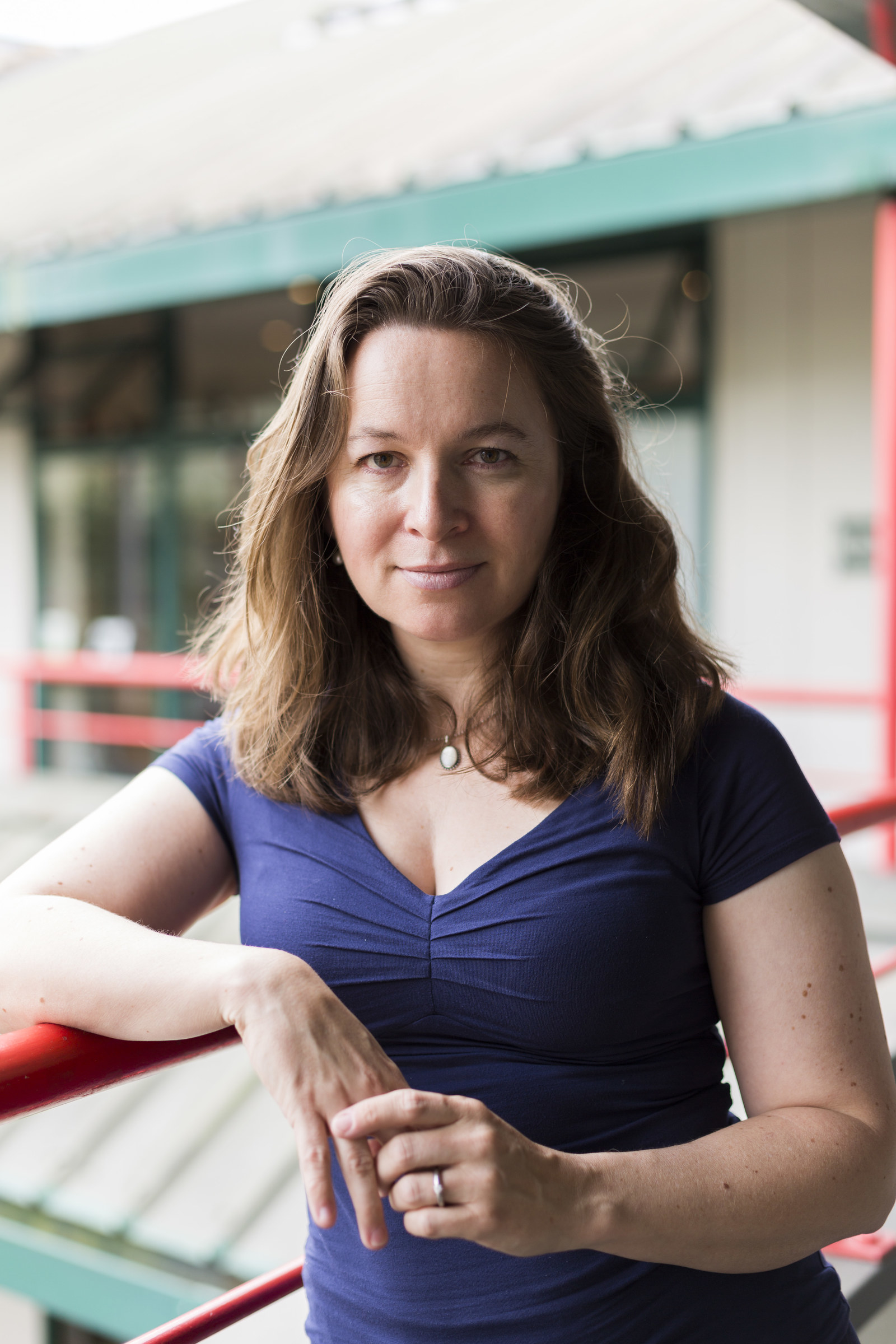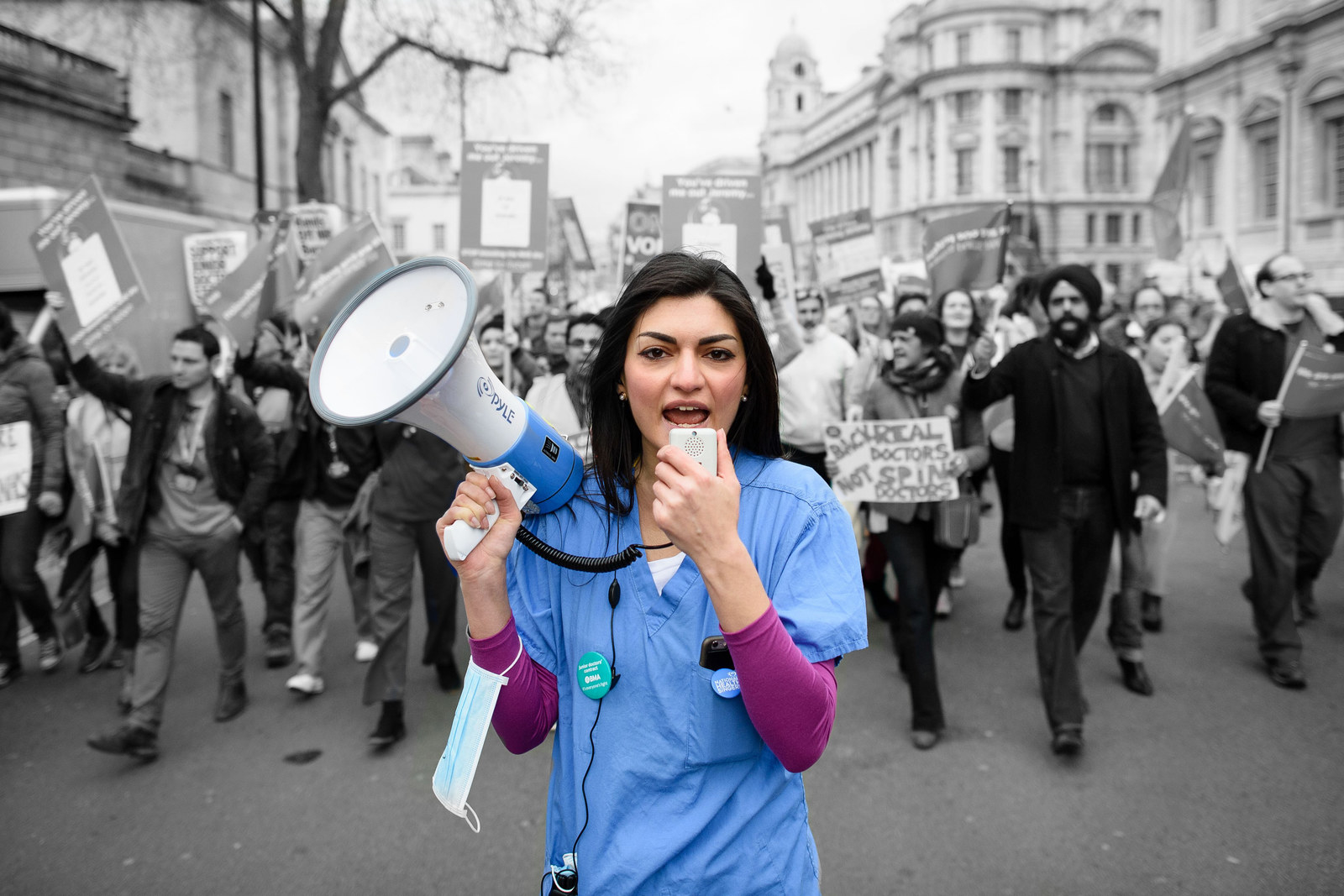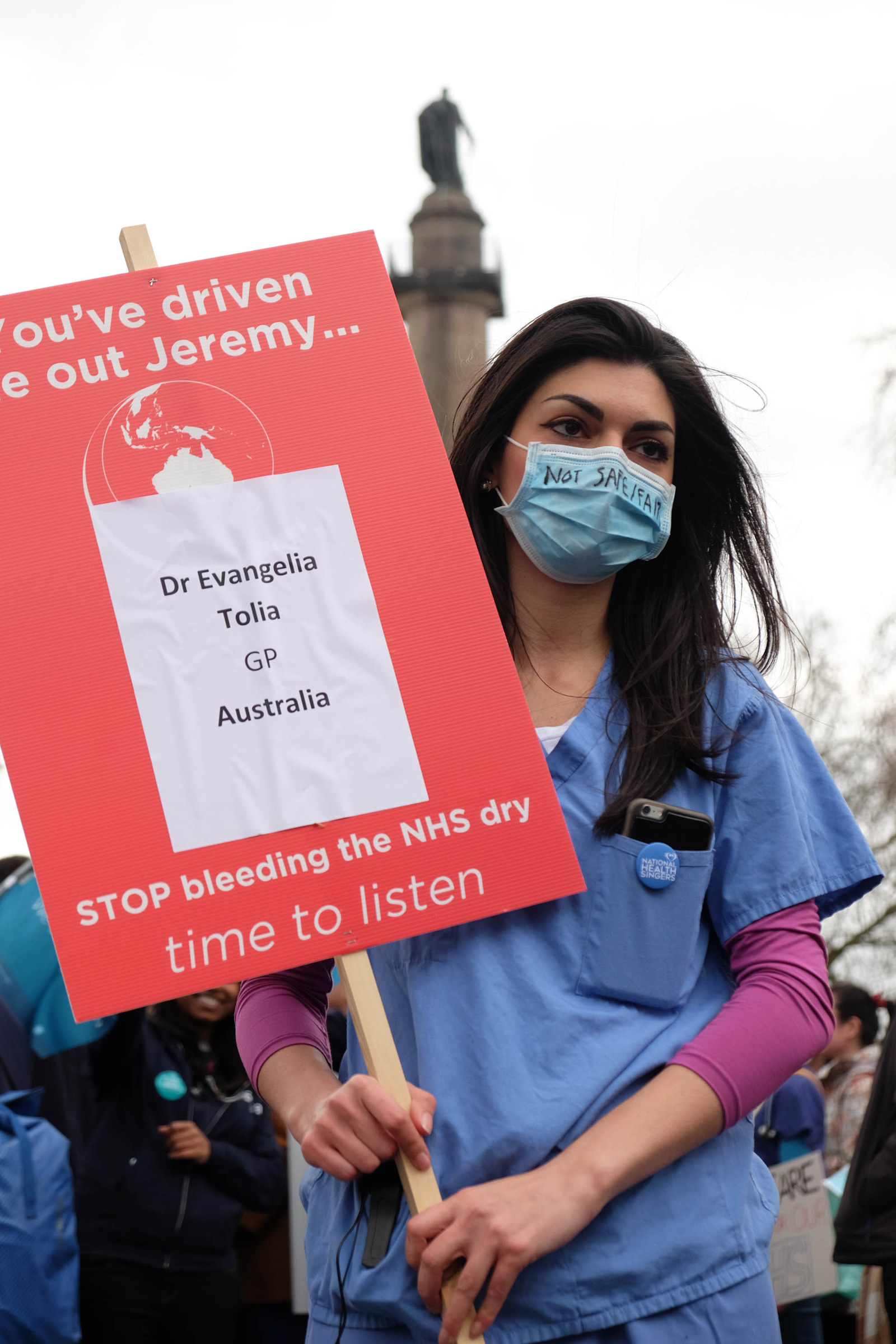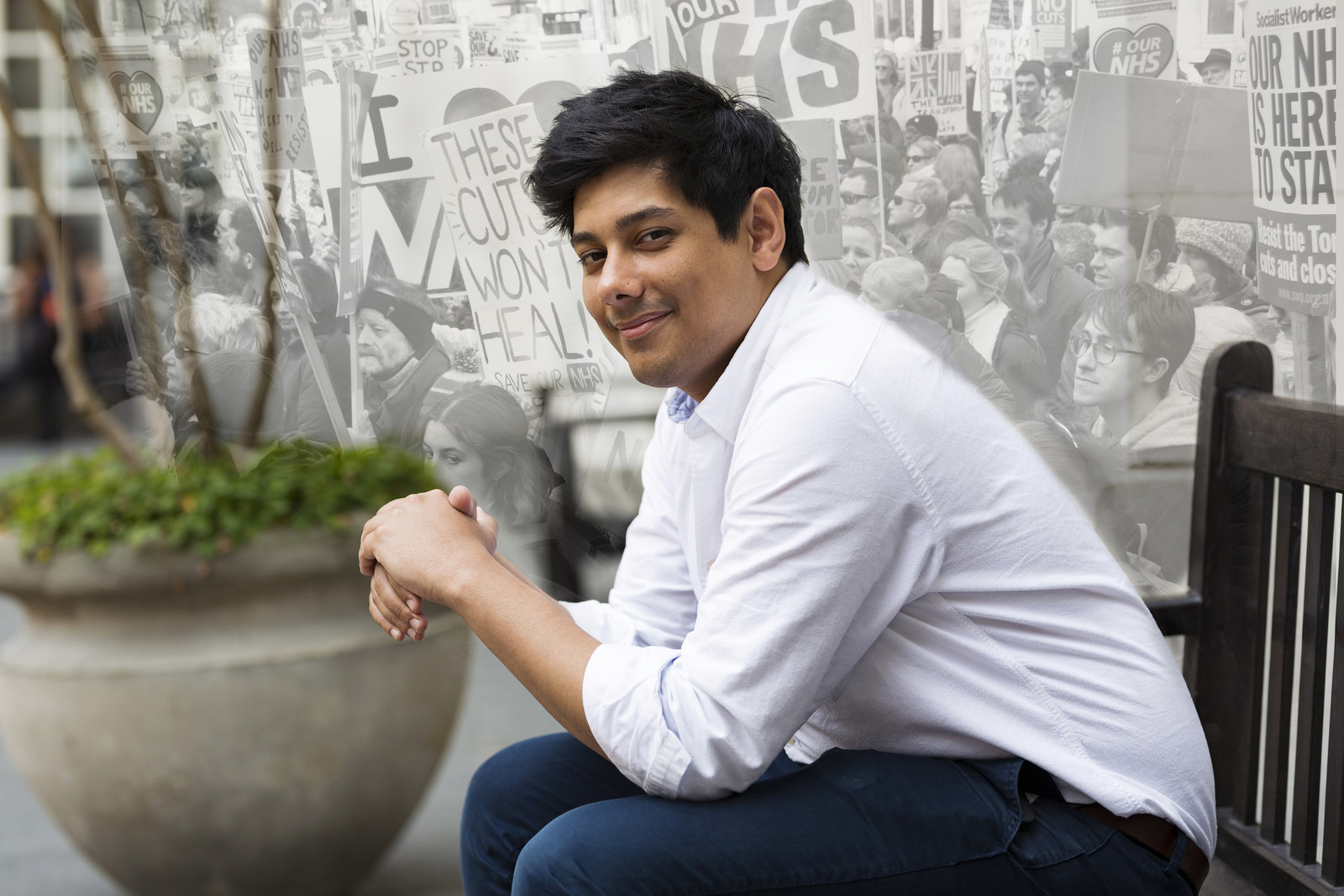2016 was a historic year in the NHS. For the first time since 1974, junior doctors poured out of the wards and on to the streets to strike over a contract that would radically reshape the way they worked.
Health secretary Jeremy Hunt had pledged to create a “truly seven-day NHS” by altering doctors’ working structures. It was an attempt to prevent an excess number of deaths in hospitals, which he attributed to not enough doctors working at weekends.
But doctors were quick to point out that most of them were already working weekends. Many argued that if they were to work more Saturdays and Sundays without more staff being recruited, their services would be spread too thinly, risking patient safety.
Nonetheless, after months of protests, strikes, a court case, and stop-start discussions between the government and the doctors’ union the British Medical Association (BMA), Hunt imposed the contract on the 54,000 doctors, despite them rejecting it in a ballot.
Last autumn, thousands of junior doctors started working on the new contract. This August, almost all remaining doctors in the country will be moved to it. Many have already left the NHS in droves.
But a year later, some of the doctors who fought the hardest to stop it in the first place have said that the fight isn’t over yet.

Dr Rachel Clarke, Oxford-based palliative care specialist and author of the new memoir Your Life in my Hands – A Junior Doctor’s Story.
Dr Rachel Clarke is not a woman to be messed with. When Hunt shied away from engaging one-on-one during the dispute, she upped her game as one of the contract’s most vocal critics and camped outside the Department of Health. On behalf of 54,000 junior doctors, she demanded to be listened to.
Hunt, however, made it no further than his office window at Richmond House, where Clarke said Department of Health staff told her he would stand, absolutely fuming, and watch her protest.
Throughout the contract dispute, junior doctors warned that increasing the number of hours doctors worked over the weekend without employing more doctors overall would leave huge holes in hospital rotas during the week.
“That’s exactly what seems to be happening,” Clarke said when we met in London recently. “It’s an absolute nightmare.”
Clarke has not yet been moved on to the new contract, but she knows plenty of people who have. “It’s so depressing because we’re looking at these rotas and thinking, There is no way I could work that,” she continued. “They’re so different to what they used to be, and people are already saying ‘I’m quitting.’”

Since the start of the contract dispute, the number of junior doctors leaving the profession before reaching consultant stage, the next level up from a junior doctor, has risen significantly. It increased still further after the contract was imposed: Just half of those who finished their first two years in 2016 decided to continue their training.
“That’s telling you something very, very bad is going on,” Clarke said.
“[Junior doctors have] dedicated six years of their life to the most brutal exams imaginable, and committed to a career that they know is going to be arduous.
“They’ve got a whopping great student loan of tens of thousands of pounds and in spite of all of that they’re walking away from the NHS.”
Clarke was among the doctors who initially stepped back from the ward – “to lick my wounds more than anything” – after the dispute ended, choosing to postpone continuing with her next stage of training and eventually returning to a palliative care post this year.
“I’d been through this awful experience,” she said.
“A lot of us who’d been activists felt broken. We were tired, demoralised, and completely pessimistic about the future of the NHS.”
In the final months of 2016 Clarke began work on a memoir, called Your Life in my Hands. It’s a powerful account that intermingles emotional recollections of saving lives and stomach-churning experiences of when medicine could no longer help someone, mixed with the tense NHS politics that have dominated news headlines.
But above all, it’s a book about hope, and writing it rekindled Clarke’s bruised love for medicine.
“I thought about medical school, my early days… and all of these amazing experiences which are the everyday warp and weft of being a doctor, and everything I love about it,” she said.
She hopes that it will help to keep alive the message that doctors fought to get across during the dispute: “I’m desperate for people to know what’s really happening because I think if they knew how fragile the NHS is at the moment and how real the fears are that it won’t survive the next five years, they would be up in arms.”
She thinks that after the contract dispute galvanised the workforce, there’s no chance her colleagues will keep quiet about their concerns in future.
“Ironically for Jeremy Hunt, he has created a force to be reckoned with,” she said. “Junior doctors will speak out, will tell the truth, and are not going to let him get away with it.”

Dr Roshana Mehdian, London. Surgeon and orthopaedics registrar and cofounder of the Healthcare Leadership Academy. Currently based in Washington, DC.
“I’ve never been a campaigner,” Dr Roshana Mehdian told BuzzFeed News over the phone recently.
But when she led a crowd of thousands of junior doctors along Whitehall early last year, during what turned out to be one of many protests against the contract, it didn’t quite look that way.
“I just wanted people to understand our point of view, and I started speaking out because I feel passionately about the NHS, it’s as simple as that,” she said.
“For me this was never about winning some sort of battle. It was about trying to explain, without exaggeration or being overly emotional, what the problems are. And I hope that’s what I did.”
While the dispute itself is over, and Mehdian has laid her role as a temporary activist to rest, she is keen to find new ways to effect change within the health service.

During a break from training, she has been working in health technology in Washington, DC, where she hopes to gain insights she can use to help improve services in the NHS when she returns to the UK and her role as a junior doctor.
“The challenges of the past two years made me ask big questions about the future of healthcare, and I wanted to develop skills that might help address those challenges,” she said.
Mehdian said that she feels proud to represent the NHS within the US medical sector, but that working in a nonclinical role, while also hearing tales of astonishingly low morale from doctors back in the UK, has been something of an eye-opener.
“At the moment, the nature of the work I do in the US means I get to have a life and I feel valued,” she said.
“I’ve got lots of friends who have [transitioned on to the new contract in the UK] and I think morale is really poor. If anything it’s gotten even worse, which is what we were saying would happen. That’s really sad.”
She believes many more doctors are likely to leave medicine and may reconsider her own future too, “if I go back and people are as stressed and as downtrodden as they have been”.
“Of course I understand that we have to do all of the on-calls, and the night shifts, and the long hours, but unless the balance is found where the wellbeing and whole life of doctors and nurses is valued, then people will not be satisfied with working in the NHS,” she said. “To keep themselves sane, they will consider leaving, and that is what’s happening at the moment.”
Another way Mehdian hopes to challenge obstacles doctors face is through the Healthcare Leadership Academy, an independent training programme that she cofounded with the former chair of the BMA’s junior doctors committee Dr Johann Malawana. It teaches doctors to negotiate and talk to leaders in NHS.
“We need to continue to highlight the issues and hope the right people listen,” she said. “I think some people within the establishment do listen when you talk about it sensibly.”
In today’s tumultuous political landscape, Mehdian believes doctors may now be more able to sway the establishment. “All political parties coming to a consensus about the challenges faced by the NHS is quite something,” she said. “Where I can engage to make change, I will.”

Dr Nadia Masood, London. Anaesthetist and member of campaign group Justice for Health.
Dr Nadia Masood is excited but nervous to return to working as a junior doctor this August, after taking nine months out following the contract dispute.
“There were lots of reasons why I felt the need to take a break, but I think nearly every junior doctor had their morale affected by the dispute,” she told BuzzFeed News. “I wasn’t feeling very good about being a doctor, to put it very, very simply.”
While she’s taken a breather from the intense combination of working and training that characterises at least the first decade of a doctor’s career, Masood, an anaesthetist, has instead worked ad-hoc “locum” shifts.
Temporary doctors on these shifts have become more crucial than ever, as trusts struggle to fill gaps left in hospital rotas, which many doctors believe are an effect of the new contract.

“I’ve been offered many, many more locum shifts than I’ve taken and I’m definitely seeing the effects of worsening rota gaps,” Masood said.
“I just got an email now, and it’s always ‘urgent shift needs filling’.”
Masood believes that a shortage of doctors – combined with a situation where those who are available are often unwilling to do work that she called “intense” and “demeaning” – is leaving the open shifts unfilled.
“The environment is really stretched,” she said. “I was talking to a few of my colleagues about how different the working environment is now compared to just last year, or the year before, how quickly and dramatically things have deteriorated.
“Things that used to be rare, unpleasant occurrences have now just become routine and standard, but it’s really important that we don’t accept them as normal.”
She said she has heard of patients being left in theatre recovery bays after overnight operations rather than being moved to wards, due to a lack of beds, and fewer specialists than is considered ideal working on shifts.
“Usually there are enough anaesthetists to be able to handle two life-threatening emergencies and you just have to hope that there’s not more than that,” she said.
Masood, who was also part of the team of doctors who took Hunt to court over the contract (Hunt won, but Masood noted that he was forced to row back on some of its terms), is eminently employable outside medicine – so why is she going back to being a full-time junior doctor in what she sees as such a bleak environment?
“I feel good about going back because there is still something really beautiful about being a doctor that I miss,” she said.
“I know it’s been the right choice for me to make as a career despite all of the problems that the NHS has. I’m nervous, but I’m looking forward to it.”

Dr Jeeves Wijesuriya, London. General practitioner at Homerton Hospital and chair of the BMA’s junior doctors committee.
As the dispute came to a head at the end of 2015, shortly after the Paris terrorist attacks that killed 130 people, National Medical Director of the NHS Commissioning Board Sir Bruce Keogh asked what junior doctors would do if such an atrocity occurred during the strikes they were proposing at the time.
Outraged, doctors insisted they would return to work. Dr Jeeves Wijesuriya was unfortunately able to prove that sense of dedication when a terrorist attack took place in Westminster this March. He was not on duty at the time but happened to be nearby, and ran to the scene to provide emergency care to those who had been critically injured. “I heard the screaming so ran to help,” he told BuzzFeed News at the time.
This marked Wijesuriya’s only appearance in the national news this year, but he was a regular face at the height of the dispute as part of the BMA’s junior doctors committee who negotiated the contract with the government.
Wijesuriya remains no less active in his mission to shape working conditions that he feels are fairer to doctors and safer for patients. Earlier this year, he took on the role of committee chair, which became vacant after the doctors’ defeat led Dr Johann Malawana to stand down, and Malawana’s successor Ellen McCourt lasted just a few months.
“It’s not just continuing to engage with employers meaningfully, but also challenging them when things go wrong,” Wijesuriya told BuzzFeed News at the BMA offices earlier this week.
“It’s about calling trusts out when abuses occur. It’s about finding your allies and making sure you build bridges with other groups who have an influence, like the General Medical Council and Health Education England.”

“We’ve been through a really difficult patch,” he added. “If you look back to when this dispute started it’s been this incredibly difficult process that’s still going on.”
His committee is now gathering evidence of what does and doesn’t work in the contract, ahead of a review in 2018. This includes monitoring working hours, the gender pay gap, and training structures that might lead a doctor to have to move across the country at short notice.
“I’m really proud that as an organisation we continue to do those things, and I’m proud to be a part of it,” Wijesuriya said.
Tackling record levels of low morale in the workforce, however, remains at the top of his agenda, as well as working to build trust between junior doctors and the senior establishment.
“There are a lot of frustrations that we have about the way that this was handled by the government. I think those scars remain,” Wijesuriya said.
“A lot of people feel a bit more insecure, and I think the profession as a whole feels a little bit less respected by a government that should be listening to it.”
But, he added: “I think that’s bigger than the contract.”
